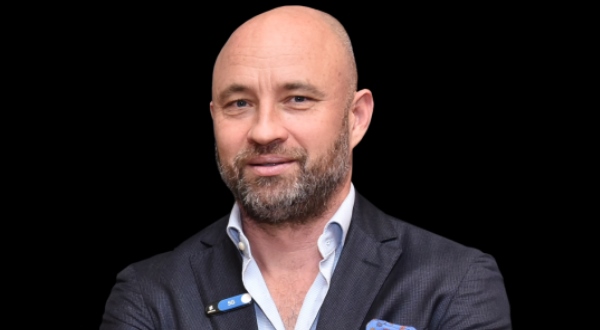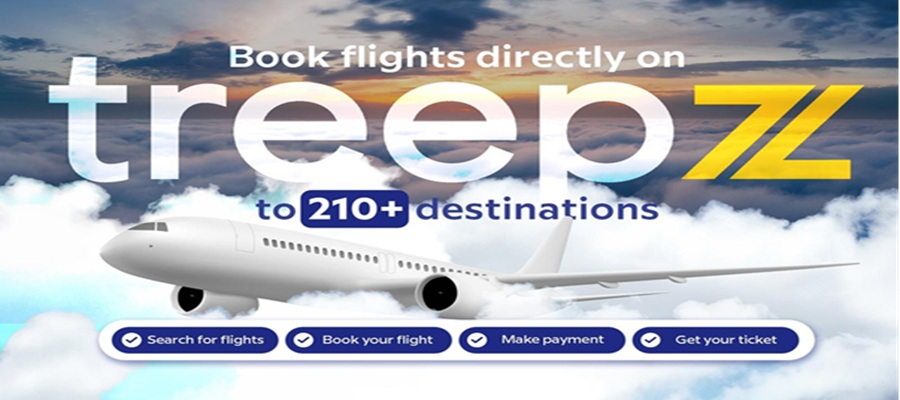Telecom
Ericsson Mobility Report Reveals Nigeria as the Third Highest Mobile Subscriptions Additions in Q1 2021

Ericsson recently unveiled two reports: The 20th edition of the Ericsson Mobility report and “The Future of Urban Reality Report” that together, forecast the future of 5G in Sub-Saharan Africa and around the world in addition to forecasting the post-pandemic world.

Both reports reveal data that confirm the acceleration of mobile connectivity and digitalization in Nigeria, the country with the third highest mobile subscriptions additions in Q1 2021 globally according to the latest Ericsson Mobility Report.
Ericsson projects that 5G mobile subscriptions will exceed 580 million by the end of 2021, driven by an estimated one million new 5G mobile subscriptions every day. The forecast, which features in the latest Ericsson Mobility Report, confirm the expectation that 5G will become the fastest adopted mobile generation. 5G is expected to surpass a billion subscriptions two years ahead of the 4G LTE timeline for the same milestone.
The report features breakout statistics from Sub-Saharan African markets where around 15 percent of mobile subscriptions were for 4G at the end of 2020. The net addition of mobile subscriptions was quite low during Q1 2021, at 59 million.
This is likely due to the pandemic and associated lockdown restrictions. India had the most net additions (+26 million), followed by China (+6 million) and Nigeria (+3 million).
Mobile broadband subscriptions in Sub-Saharan Africa are predicted to increase, reaching 76 percent of mobile subscriptions by 2026. However, 5G volumes are not expected to grow in the region for 2021 but are likely to reach around 70 million 5G subscriptions in 2026.
Separately, the Global Telecom Market Report (GTM) also known as “The Future of Urban Reality Report” was also recently launched by the Ericsson ConsumerLab, to assess the penetration of 5G and the tremendous potential it holds to markets around the world.
The latest Ericsson ConsumerLab report is Ericsson’s largest consumer study to date, revealing key insights about what Nigerian consumers believe will happen beyond the pandemic, into the year 2025, through surveying a sample of 1,000 to 2,000 respondents between the ages of 15–79.
The report found that, when entering the “next normal”, consumers in Africa will have added an average of 3.4 online services to their daily online activities, while also increasing the time they spend online by 10 hours per week by 2025, in comparison to their pre-pandemic habits.
This move is also expected to bridge the gap between moderate and advanced online users, with the more moderate online users having introduced more online services in their daily life over the course of the pandemic.
Due to the COVID-19 pandemic, the implementation of online education at schools and universities as well as remote working in Nigeria has increased to 72 percent and 62 percent respectively. Going forward online education and remote working are collectively expected to remain at a level of 29 percent.
Before the COVID-19 pandemic, the amount of online shopping in Nigeria stood at 35 percent out of the total number of all shopping events, both online and at physical stores.
During the COVID-19 pandemic, this figure increased to 51 percent. Nigerian consumers anticipate their habits around online shopping will remain at a level of 44 percent after the COVID-19 pandemic has passed.
Sean Cryan, Country Manager of Ericsson Nigeria says: “Positioned as the third highest mobile subscriptions additions in Q1 2021 globally, Nigeria is growing tremendously setting #AfricaInMotion. The growth can be attributed to the young, growing population, the increasing digital skills, and the more affordable smartphones. Correspondingly, this growth is reflected in the online habits of the country where the dependency on online activities for daily tasks is expected to remain high in the future.”
Ericsson has found that despite the uncertainty caused by COVID-19, service providers continue to switch on 5G, and more than 160 service providers have launched commercial 5G services.
Telecom
Oyedele Dismisses Claims Bank Accounts Without TIN Will Be Frozen

Taiwo Oyedele, Chairman of the Presidential Committee on Fiscal Policy and Tax Reforms, has dismissed reports that bank accounts not linked to a Tax Identification Number (TIN) will be frozen or automatically debited from January 1, 2026.

Taiwo Oyedele
Oyedele described the claims as false and misleading, warning Nigerians against panic over misinformation surrounding recent tax and financial reforms.
In a post on his X handle Tuesday morning, he wrote: “Don’t let anyone manipulate you. Your bank account is safe. Misinformation makes you panic and fear a reform that is designed to help you.
“When they tell you that your account will be frozen or automatically debited from January 2026, ask them for the evidence in the new law. Be wise.”
He stressed that no provision in the new tax laws authorises the freezing of bank accounts, adding that the rumours are part of widespread misrepresentation of the reforms.
The committee chairman reiterated that the reforms are intended to simplify Nigeria’s tax system and ease the burden on ordinary citizens, not to impose punitive measures on bank customers.
Telecom
Amazon Blocks 1,800 North Koreans From Job Applications

US tech giant, Amazon has disclosed that it blocked more than 1,800 North Koreans from applying for jobs, amid growing concerns that Pyongyang is deploying large numbers of IT workers overseas to earn and launder funds.

Amazon
In a LinkedIn post, Amazon’s Chief Security Officer, Stephen Schmidt, said North Korean nationals have been attempting to secure remote IT roles with companies around the world, particularly in the United States.
He noted that the company recorded nearly a one-third increase in such applications over the past year.
According to Schmidt, many of the applicants operate through so-called “laptop farms” — computers physically located in the US but remotely controlled from abroad.
He warned that the issue is not unique to Amazon and is likely occurring at scale across the tech industry.
He added that common red flags include incorrectly formatted phone numbers and questionable academic credentials.
The issue has previously drawn the attention of US authorities. In July, a woman in Arizona was sentenced to more than eight years in prison for running a laptop farm that helped North Korean IT workers obtain remote jobs at more than 300 US companies.
Officials said the scheme generated over $17 million in revenue for both the woman and North Korea.
Last year, South Korea’s intelligence agency also warned that North Korean operatives were using LinkedIn to pose as recruiters, approaching South Koreans working at defence companies in an attempt to steal sensitive technological information.
“North Korea is actively training cyber personnel and infiltrating key locations worldwide,” Hong Min, an analyst at the Korea Institute for National Unification, told AFP.
He added that, given Amazon’s business model, the motivation behind such operations is largely economic, with a high likelihood of attempts to steal financial assets.
North Korea’s cyber warfare programme dates back to at least the mid-1990s and has since expanded into a cyber unit of about 6,000 personnel known as Bureau 121, according to a 2020 US military report.
In November, Washington announced sanctions against eight individuals accused of being state-sponsored hackers, alleging their illicit activities were carried out to fund North Korea’s nuclear weapons programme.
The US Treasury has also accused North Korea-linked cybercriminals of stealing more than $3 billion over the past three years, primarily through cryptocurrency-related crimes.
Telecom
Treepz Launches Direct Flight Bookings to UK, Canada, UAE and 210 Global Destinations

Treepz, Africa’s leading mobility and travel technology company, has officially launched direct flight bookings on its platform, enabling customers to search, compare and book flights to more than 210 destinations worldwide, including the United Kingdom, Canada and the United Arab Emirates.

The development marks a major milestone in Treepz’s transition from a mobility provider into a fully integrated travel platform. With the new service, travelers can now complete the entire booking process — from flight search to payment — directly on the Treepz website without relying on multiple agents or third-party platforms.
Speaking on the launch, Mr. Onyeka Akumah, Chief Executive Officer and Founder of Treepz, described the initiative as a defining moment for the company and for travel access across Africa.
He said launching flight bookings to serve customers with flights to over 200 destinations was a major achievement, noting that travelers could now search for flights, enter their details, make payments with their cards, and complete bookings instantly on the platform without delays or switching between multiple websites.
The launch comes at a critical time for the African travel market. December is widely regarded as the busiest travel season on the continent, driven by holiday vacations, family reunions, weddings, festivals and end-of-year celebrations.
Millions of Africans travel locally and internationally during this period, often facing challenges with slow booking systems, unclear pricing and fragmented services.
Treepz’s new flight booking system is designed to address these challenges by offering a faster, more intuitive and reliable experience.
Customers can now search and book flight tickets directly on the Treepz website, compare prices and travel options in real time, make payments using any card option, and complete bookings faster without switching platforms.
Treepz has outlined ambitious plans for 2026, including unlocking access to over six million hotels globally, which will allow travelers to book flights and accommodation together in one seamless flow.
The company also plans to expand its car rental services into Europe and South America, further strengthening its position as a one-stop travel ecosystem.
According to Akumah, these developments will significantly reduce planning time for both leisure and corporate travelers, while giving customers more control and convenience.
Treepz has already facilitated more than six million movements across multiple cities and countries, ranging from daily commutes and corporate transportation to group travel and event logistics. With active operations across Africa and recent expansion into Canada, the company continues to grow its international footprint.
The addition of flight bookings strengthens Treepz’s ability to serve global travelers while maintaining its reputation for reliability and customer-focused service.
By integrating flights, accommodation, ground transportation and experiences into one platform, Treepz is positioning itself as more than a mobility provider.
The company is evolving into a comprehensive travel solution designed for modern travelers who value speed, clarity and convenience.
Industry analysts say the move could redefine travel access across Africa, particularly during peak seasons when demand for efficient booking systems is highest.
With this launch, Treepz has taken a bold step toward building a unified, tech-driven travel ecosystem that connects Africa to the world.

 News3 days ago
News3 days agoUS Okays $2.1Bn for Christian Healthcare in Nigeria

 General News3 days ago
General News3 days agoThe Mood Market to Light Up Lagos with a Rooftop Gifting, Food & Lifestyle Fair this Christmas

 News3 days ago
News3 days agoSERAP Asks Tinubu to Release CTC of Tax Bill

 Broadcasting3 days ago
Broadcasting3 days agoTim Akano Recounts 20-Year Growth, Media Support at NITRA End-of-Year Meet

 E-Financial3 days ago
E-Financial3 days agoSterling Bank, Water.org, Sterling One Foundation Partner on WASH Loan for Millions

 General News3 days ago
General News3 days agoLeo Stan Ekeh: A “Rare Avis”, an Unconquerable Entrepreneur

 News2 days ago
News2 days agoUS Begins Partial Visa Ban on Nigerians January 1

 General News3 days ago
General News3 days agoFCCPC Forces Ikeja Electric Into Compliance, Unseals Headquarters After Rights Breach



























